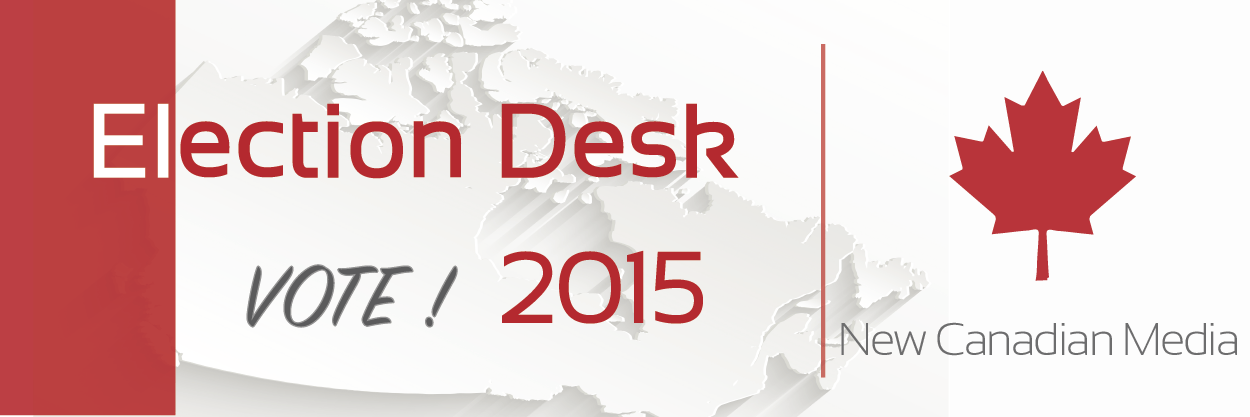
It is perhaps a good thing that immigration is not a major federal campaign issue, although the issue does surface in certain immigrant-rich ridings. And, of course, it was one facet of the Globe debate in Calgary, during which the leaders of the three major federal parties spoke to their own platforms.
1. What advice would you give an incoming minister of immigration and multiculturalism?
Noorani: The past five years have seen a substantial change in the immigration system. From a system that was inherited that created huge backlogs as a result of a law passed by former Government forcing every single application to be processed even if they did not meet the requirements. This led to an inefficient system creating backlogs of six to seven years that saw many candidates coming to Canada in their late forties and fifties! The former point system rewarded education and work experience at the cost of language skills. This has resulted in us having the best educated taxi drivers in the world.
I believe that the new immigration system is a more modern humane way of getting immigrants into Canada. The Express Entry system is an online application process that factors in Canada’s labor market requirements and selects immigrants who have the language proficiency required for employment as well as the education needs to contribute to Canada’s economy. Additionally, we have the ability to bring in younger candidates who can contribute positively to the Canadian economy. This is a scalable and sustainable program and I do not believe this system should be tampered with.
I would like to see Multiculturalism as being harmonious with being Canadian.
Louis LaFontaine, the great co-founder of the union that would eventually lead to our Confederation, had this to say about being Canadian when addressing his electors at Terrebonne in 1848:
Canada is the land of our ancestors. It is our country as it must be the adopted country of the different peoples which come from around the globe, to make their way into its vast forests to build their homes and place their hopes. Like us, their paramount desire must be the happiness and prosperity of Canada. This is the heritage which they should endeavour to transmit to their descendants in this young and hospitable country. Above all, their children must be like us, Canadians.
El-Assal: The Conference Board of Canada is a non-partisan organization.
2. Would you change the relative proportion of economic, family unification and humanitarian (refugee) migrants arriving in Canada every year?
El-Assal: While Canada’s immigration system has always been driven primarily by demographic and economic objectives, family-class immigrants and refugees remain essential elements of the country’s immigration system. As such, adequate supports should continue to be in place to enable the effective attraction, settlement, integration and retention of all three classes of immigrants.
Noorani: Economic category: According to the Conference Board of Canada, our fertility rate stands at 1.6 which is well below our replacement rate of 2.1. This means a big gap and the report calls for numbers to rise to 350,000 per annum. The largest proportion should be economic class so that we have the population growth additionally, being high skilled professionals, we can expect an economic boost as well.
3. What’s the ideal number of newcomers (including refugees) that Canada should take in every year (compared to the current average)?
Noorani: Answered above.
El-Assal: According to the Conference Board’s Canadian Outlook Long-Term Economic Forecast, Canada requires 350,000 immigrants arriving annually by 2035 to sustain healthy economic growth. Of course, this depends on Canada’s absorptive capacity (i.e. being able to effectively settle and integrate immigrants and provide essential supports and services to the newcomers), while also ensuring that Canada’s safety and security is upheld.
4. Should multiculturalism be official policy? What needs to change?
El-Assal: Multiculturalism is an official Canadian government policy, expressed in the Canadian Charter of Rights and Freedoms, and the Canadian Multiculturalism Act. Canada’s multiculturalism policy, and approach to settlement and integration, encourages immigrants to become full participants in all aspects of Canadian life. This process, which is commonly referred to as nation building, helps promote social harmony in the country. As a result, there is widespread acceptance of immigration in Canada as illustrated by a recent Environics Institute survey which also found that Canadians see multiculturalism as one of the nation’s most important symbols.
Noorani: Good, bad or ugly, multiculturalism is the glue that holds us all together as a country and I would be averse to changing anything because it works!
5. Should provinces and municipalities have a greater role in immigration? What role should that be?
Noorani: Absolutely! Their roles as so critical to positive outcomes for newcomers. Municipalities are the micro level and Mayors need to take a leadership role in helping immigrants beyond song, dance and ethnic food!
El-Assal: Federal, provincial and municipal governments are all critical actors in Canada’s immigration system, and work together to foster an approach towards immigration that allows the three levels of government to achieve mutual objectives. Inter-government collaboration between the senior levels of government has strengthened in recent decades as a result of increased dialogue and formal Federal/Provincial/Territorial agreements. More progress on collaboration will be needed to ensure that immigrants reach their full economic potential – credential recognition, bridge training, settlement services, language training, housing, and access to transportation are among the issues that will require expanded effort by all three levels of government.
6. What can a new government do differently to enable “foreign credential recognition”?
El-Assal: FCR has been a challenge in Canada that governments have been trying to address for decades. To make further progress, governments, and key stakeholders including business, regulatory bodies, post-secondary educational institutions, and immigrant-serving organizations will need to invest more resources to ensure viable solutions are attained nationally and regionally on the scale required to increase national productivity and innovation performance and close the income gap currently experienced by immigrants.
Noorani: The FCR program along with the Pan-Canadian Framework for the Assessment and Recognition of Foreign Qualifications are great initiatives and need to be brought to the logical conclusion. Additionally the single pan-Canadian standard should be complemented by a single point of contact and Web portal, which would streamline and simplify the licensing process and better align it to the new labour market demand-driven immigration system (i.e. Express Entry). To increase efficiency and transparency, the assessment and recognition process should be accessible pre-arrival and online to the fullest extent possible. Governments should collaborate with regulators and other stakeholders so that prospective immigrants are required to begin the credential recognition process as part of their immigration application.
Related reading: Policy advice for the next/new #cdnimm minister
 Kareem El-Assal is a Research Associate at the Conference Board of Canada. He plays a key role in the Conference Board’s National Immigration Centre, a five-year research intensive initiative that will culminate in a National Immigration Action Plan for Canada. He is developing the agenda for the Conference Board’s Canadian Immigration Summit 2016, a major two-day event that will be hosted in Ottawa on April 4-5, 2016.
Kareem El-Assal is a Research Associate at the Conference Board of Canada. He plays a key role in the Conference Board’s National Immigration Centre, a five-year research intensive initiative that will culminate in a National Immigration Action Plan for Canada. He is developing the agenda for the Conference Board’s Canadian Immigration Summit 2016, a major two-day event that will be hosted in Ottawa on April 4-5, 2016.

A social entrepreneur and an immigrant advocate, Nick Noorani is the founding publisher of Canadian Immigrant magazine and Immigrant Networks, and author of the best-selling book Arrival Survival Canada, published by Oxford University Press.

Kareem El-Assal
Nick Noorani is a well-known authority on improving immigrant outcomes. Bestselling author of Arrival Survival Canada, founder Publisher Canadian Immigrant Magazine, Chief Architect Top 25 Canadian Immigrant Awards and Founder President Prepare for Canada. Nick is a motivational speaker, social entrepreneur, author and media personality and has become a powerful voice for the successful integration of immigrants in Canada and bridging cultural gaps in the workplace and beyond. Nick has been an advisor to the Federal Government and municipal governments on immigrant issues. He has also been closely involved in creating content for Welcome to Canada – The Government of Canada official publication for immigrants. Nicks new projects are Immigrant Networks and Canada eLearning Academy.





